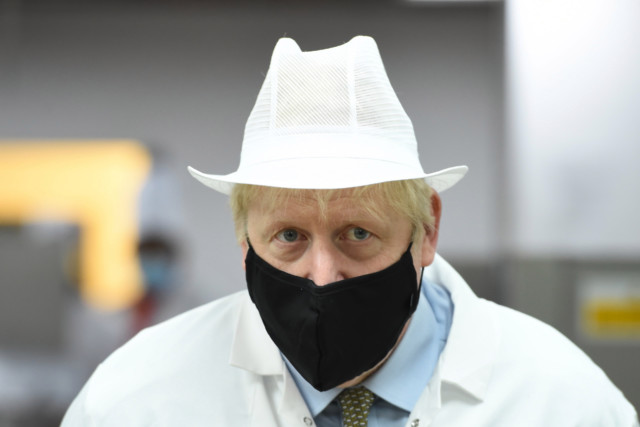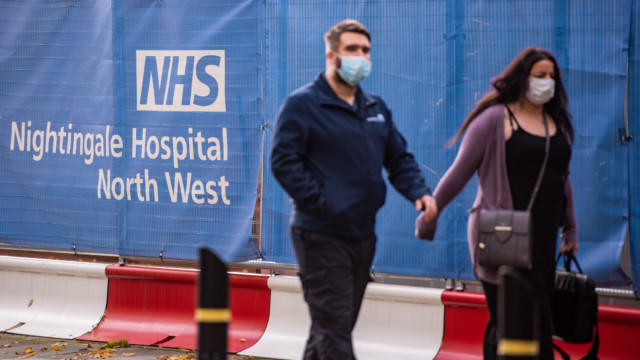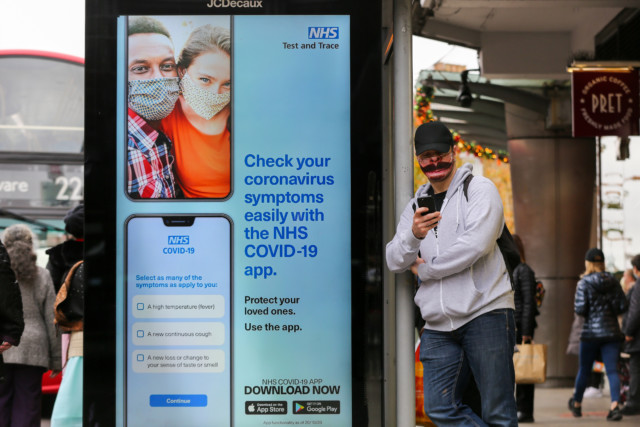BRITAIN’S NHS could be overwhelmed by Covid this winter without “decisive intervention”, medics have warned.
Scientific documents from SAGE released today predicted that if cases of hospital admissions continue to grow, it could have a dire impact on the country’s health service.

In documents from October 8, it said: “NHS data also show increases in hospital admissions, particularly in the North West, North East and Yorkshire.
“If there are no decisive interventions, continued growth would have the potential to overwhelm the NHS, including the continued delivery of non-Covid treatments.
“Data also show clear increases in hospital and ICU admissions, particularly in the North of England.”
It came as:
- The latest ONS study showed one in 100 people are estimated to have had the virus in the week to October 23
- But the most up to date R Rate showed it had gone down slightly
- Today scientific experts warned a national lockdown may be the only way to save Christmas
- Boris Johnson is due to have a UK-wide summit to come up with an action plan
- And cases are already rising about their worst-case scenarios
- No10 is now considering a Tier 4 in which only schools and essential shops remain open and travel is limited to getting to work and classes
- West Yorkshire will enter Tier 3 on Monday, as Nottinghamshire becomes the place in England with the strictest rules today
- London could go into Tier 3 within weeks, it was feared, and Birmingham is also set for new measures
SAGE scientists have repeatedly warned that Boris Johnson needs to take decisive action to tackle the rise in cases across the nation.
They modelled plans for a two-week circuit break lockdown to clamp down on infections, but the PM has said a regional approach is the best one.
Sir Keir Starmer and the Labour party have demanded a shut down before it’s too late.
Today scientific experts warned it may be the only way to save Christmas.
Earlier this week the NHS Nightingale hospital in Manchester opened to receive patients again to help deal with the rise in demand.
Britain’s NHS capacity is usually overwhelmed over the winter months as a result of more people needing care.
Admissions for respiratory illnesses like flu can double from late summer to the peak in December and January.
During the first wave of coronavirus the PM announced the lockdown in part to reduce the pressures on the health service, vowing to “protect the NHS”.

Regular routine services were cancelled across the nation so health professionals could focus on treating coronavirus patients.
But this winter regular services are not likely to shut down in the same way, so treatments can continue.
However, the SAGE documents also revealed that the numbers of infections and hospital admissions were already breaching the Covid worst case scenario plans.
It stated: “In England the number of infections and hospital admissions is exceeding the Reasonable Worst Case Scenario (RWCS) planning levels at this time.
“Projections also indicate the number of deaths is highly likely to exceed Reasonable Worst Case planning levels within the next two weeks.”
Around four times more people are catching the virus at the moment then they thought would at around this time – with cases still rising.
Their report said: “This is significantly above the profile of the reasonable worst-case scenario, where the number of daily infections in England remained between 12,000-13,000 throughout October.”
It had estimated 85,000 deaths over the winter, with a peak of 800 a day around February.
But if the cases continue on this trajectory, it could be even higher.
And if there is a sharper, higher spike than predicted, without cases being spread out over time, then it’s even more likely to overwhelm NHS services.
However, the extra spike “might only continue for three to four weeks” if cases start to come down.








